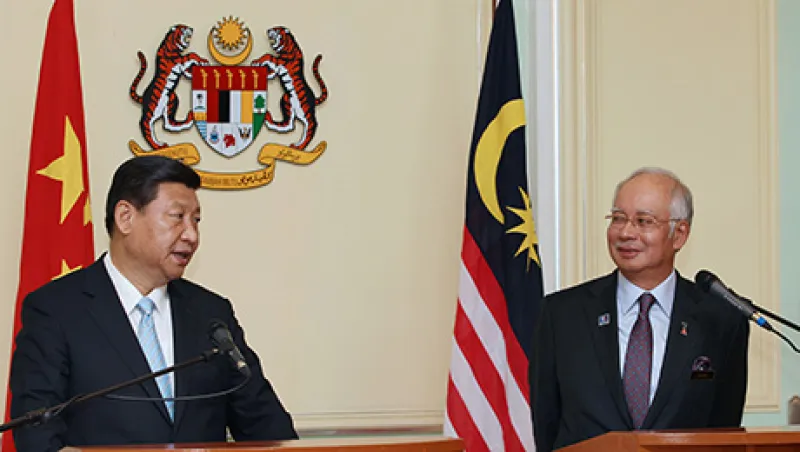
Xi Jinping, China's president, left, speaks as Najib Razak, Malaysia's prime minister, looks on during a joint news conference at the Prime Minister's Office in Putrajaya, Malaysia, on Friday, Oct. 4, 2013. Xi signed agreements today to boost economic cooperation and defense ties with Malaysia as U.S. President Barack Obama scrapped his tour of the region. Photographer: Goh Seng Chong/Bloomberg *** Local Caption *** Xi Jinping; Najib Razak
Goh Seng Chong/Bloomberg

